
Thomas Carlyle was a Scottish essayist, historian, and philosopher from the Scottish Lowlands. A leading writer of the Victorian era, he exerted a profound influence on 19th-century art, literature, and philosophy.

Mark Pattison was an English author and a Church of England priest. He served as Rector of Lincoln College, Oxford.

James Payn was an English novelist and editor. Among the periodicals he edited were Chambers's Journal in Edinburgh and the Cornhill Magazine in London.

Alfred Leslie Rowse was a British historian and writer, best known for his work on Elizabethan England and books relating to Cornwall.

Sir Leslie Stephen was an English author, critic, historian, biographer, mountaineer, and an Ethical movement activist. He was also the father of Virginia Woolf and Vanessa Bell.
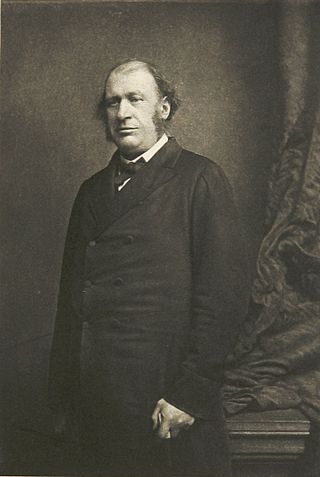
Sir James Fitzjames Stephen, 1st Baronet, KCSI was an English lawyer, judge, writer, and philosopher. One of the most famous critics of John Stuart Mill, Stephen achieved prominence as a philosopher, law reformer, and writer.
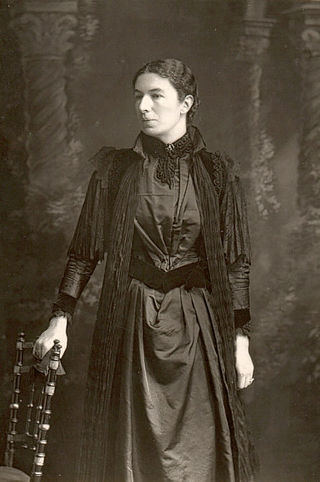
Mary Augusta Ward was a British novelist who wrote under her married name as Mrs Humphry Ward. She worked to improve education for the poor setting up a Settlement in London and in 1908 she became the founding President of the Women's National Anti-Suffrage League.

George Meredith was an English novelist and poet of the Victorian era. At first, his focus was poetry, influenced by John Keats among others, but Meredith gradually established a reputation as a novelist. The Ordeal of Richard Feverel (1859) briefly scandalised Victorian literary circles. Of his later novels, the most enduring is The Egoist (1879), though in his lifetime his greatest success was Diana of the Crossways (1885). His novels were innovative in their attention to characters' psychology, and also portrayed social change. His style, in both poetry and prose, was noted for its syntactic complexity; Oscar Wilde likened it to "chaos illumined by brilliant flashes of lightning". Meredith was an encourager of other novelists, as well as an influence on them; among those to benefit were Robert Louis Stevenson and George Gissing. Meredith was nominated for the Nobel Prize in Literature seven times.

John Morley, 1st Viscount Morley of Blackburn,, was a British Liberal statesman, writer and newspaper editor.
John Andrew Sutherland is a British academic, newspaper columnist and author. He is Emeritus Lord Northcliffe Professor of Modern English Literature at University College London.
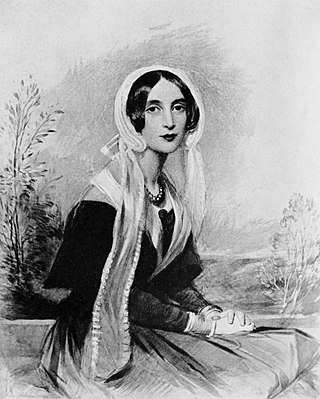
Sara Coleridge was an English author and translator. She was the third child and only daughter of the poet Samuel Taylor Coleridge and his wife Sara Fricker.
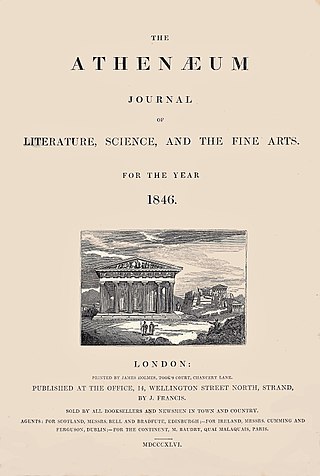
The Athenæum was a British literary magazine published in London, England, from 1828 to 1921.

The London Magazine is the title of six different publications that have appeared in succession since 1732. All six have focused on the arts, literature and poetry. A number of Nobel Laureates, including Annie Ernaux, Albert Camus, Doris Lessing, and Nadine Gordimer have been published in its pages. It is England's oldest literary journal.

The Cornhill Magazine (1860–1975) was a monthly Victorian magazine and literary journal named after the street address of the founding publisher Smith, Elder & Co. at 65 Cornhill in London. In the 1860s, under the editorship of William Makepeace Thackeray, the paper's large circulation peaked around 110,000. Due to emerging competitors, circulation fell to 20,000 by 1870. The following year, Leslie Stephen took over as editor. When Stephen left in 1882, circulation had further fallen to 12,000. The Cornhill was purchased by John Murray in 1912, and continued to publish issues until 1975.

Blackwood's Magazine was a British magazine and miscellany printed between 1817 and 1980. It was founded by the publisher William Blackwood and was originally called the Edinburgh Monthly Magazine. The first number appeared in April 1817 under the editorship of Thomas Pringle and James Cleghorn. The journal was unsuccessful and Blackwood fired Pringle and Cleghorn and relaunched the journal as Blackwood's Edinburgh Magazine under his own editorship. The journal eventually adopted the shorter name and from the relaunch often referred to itself as Maga. The title page bore the image of George Buchanan, a 16th-century Scottish historian, religious and political thinker.

Sir Edward Tyas Cook was an English journalist, biographer, and man of letters.
The Fortnightly Review was one of the most prominent and influential magazines in nineteenth-century England. It was founded in 1865 by Anthony Trollope, Frederic Harrison, Edward Spencer Beesly, and six others with an investment of £9,000; the first edition appeared on 15 May 1865. George Henry Lewes, the partner of George Eliot, was its first editor, followed by John Morley.
Murray's Family Library was a series of non-fiction works published from 1829 to 1834, by John Murray, in 51 volumes. The series editor was John Gibson Lockhart, who also wrote the first book, a biography of Napoleon. The books were priced at five shillings; Murray's approach, which did not involve part-publication, is considered a fundamentally more conservative business model, and intention, than used by the contemporary library of the Society for the Diffusion of Useful Knowledge.
The Great Writers series was a collection of literary biographies published in London from 1887, by Walter Scott & Co. The founding editor was Eric Sutherland Robertson, followed by Frank T. Marzials.
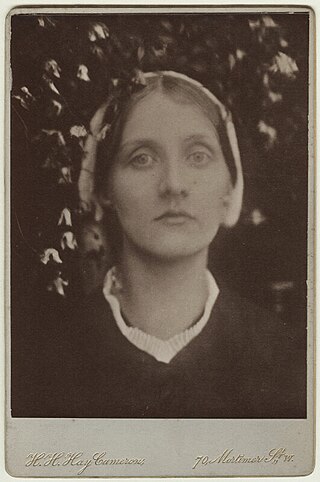
Julia Prinsep Stephen was an English Pre-Raphaelite model and philanthropist. She was the wife of the biographer Leslie Stephen and mother of Virginia Woolf and Vanessa Bell, members of the Bloomsbury Group.















